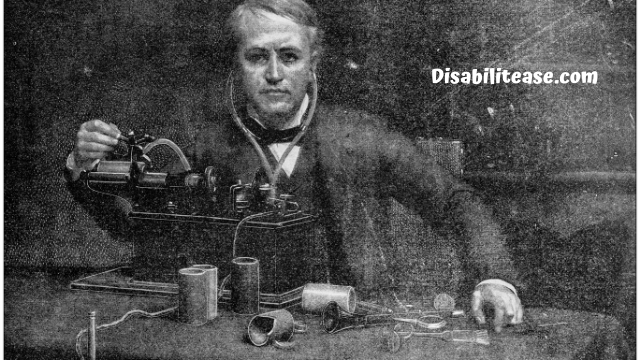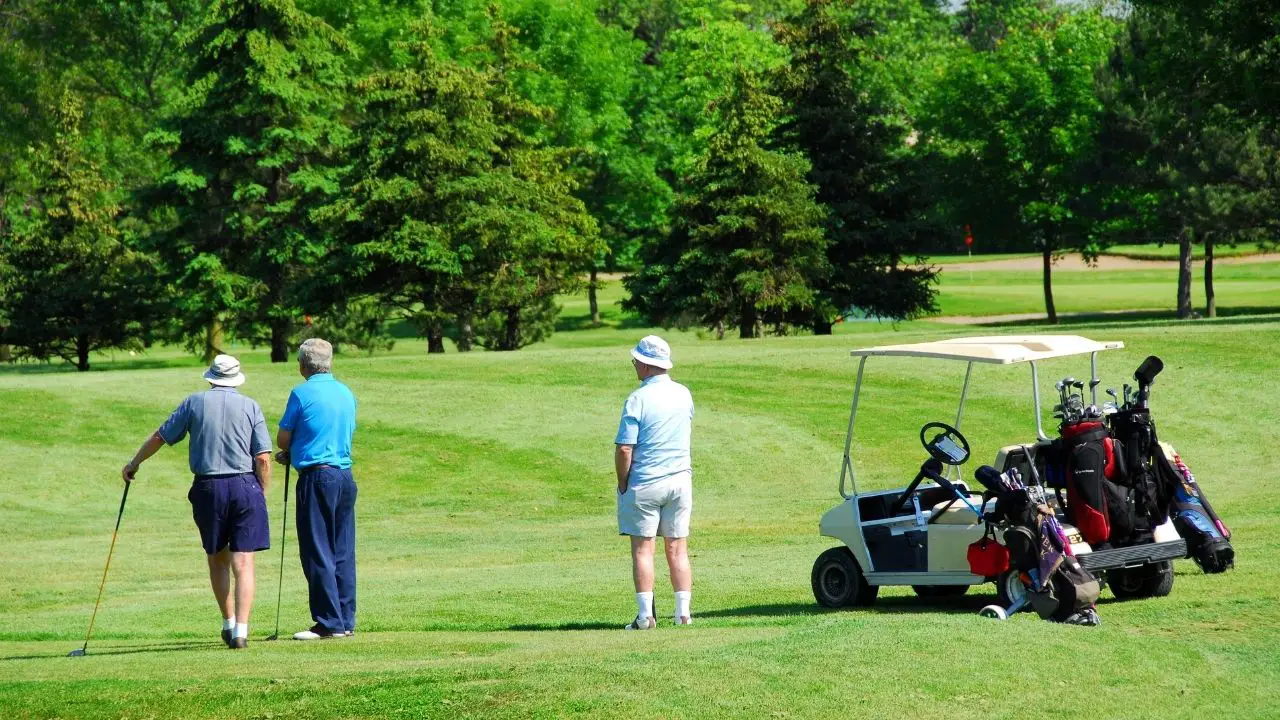So how deaf was Edison? Edison was deaf in one ear, while his second ear was also lagging, hardly detecting sounds.

Amazingly, contrary to popular belief, the reason for his deafness was neither battering nor accident.
The underlying reason was something very different. Explore this medical mystery here!
Also, you have to check out my post on the How Come Deaf Can’t Speak?
Table of Contents
How Deaf Was Edison? Let’s unravel
In Nov 1879, Thomas Edison applied for a light bulb patent. That bulb was able to glow for 1,200 hours, dragging the world out of perpetual darkness. The electric bulb is a famous but not the only invention of Edison. He has 1,093 other scientific inventions under his belt.
This is also a bitter reality that this genius was also deaf. Edison never deemed this profound deafness a disability but a blessing in disguise. Deafness allowed him to concentrate more on his work, think intuitively, read persistently, and experiment with optimal attention.
Since early childhood, Edison was shy of small talk, and his deafness became an excellent shelter to steer clear of casual chit-chat.
“As a boy, my only refuge was the Detroit Public Library. I did not read a few books, but I read the whole library. – Thomas Edison.”
Cause of Deafness
The deafness of Thomas Edison is one of the most convoluted medical mysteries of all time. The cause has been debated over time and, of late, a hot topic among hearing experts and fandom.
Edison himself was a bit too confused about the incident that led to his deafness. On different occasions, he put forth different versions. Of them, two gained popularity. The versions go as follows;
First Version
At the tender age of 12, Edison worked as a “news butcher,” supplying dailies on the Grand Trunk Railway. Besides newspapers, he would sell peanuts, candies, and sandwiches.
One day, he was trying to climb into a freight train with both arms loaded with bundles of confectionery and newspaper. But, he hardly caught the rear step. A trainman tried to help him and grabbed both his ears to push him inside. This stupid help was so cruel to the little gasping Edison.
Edison felt that something had broken in his ears. After this incident, the unmistakable sound started evading and fading for Edison.
Second Version
Edison narrated his ordeal of being hit by a pugilist train conductor on another occasion. Edison would use a train bogie as his experimental lab due to space constraints.
One day, the experiment went awry, a fire broke out, and the guard went wild. The furious guard-cum-conductor repeatedly punched poor Edison’s ears. The ordeal does not stop here. He then threw battered Edison off the running train and his apparatus and dreams.
Twist of Saga
Contrary to popular belief, Edison confided to his close friends that these events had never happened. He had concocted these stories to gain sympathy against the backdrop of his record achievements.
Nevertheless, Edison stuck to the claim that hearing loss began at 12 due to reasons unknownst to him.
Paul Israel, the writer of Edison’s biography and editor of Edison’s papers at Rutgers University, revealed that Edison suffered various ear infections in early childhood.
Then, he also contracted scarlet fever, which proved a final nail in his (deafness) coffin. Moreover, Edison was also diagnosed with otosclerosis and cholesteatoma – both related to abnormal remodeling of tiny bones of the ear.
The earlier life of Edison also corroborates this notion. In 1905, when he was on the verge of turning 57, he underwent ear surgery for mastoid access which portrays early-life ear infections.
FAQ
Q: Was Thomas Edison completely deaf?
A: No, Thomas Edison was not completely deaf. He suffered from hearing loss that gradually worsened over time.
Q: How did Edison become deaf?
A: The exact cause of Edison’s hearing loss is not clear. Some speculate that it was due to a bout of scarlet fever he had as a child, while others believe it was a result of repeated exposure to loud machinery in his workshop.
Q: At what age did Edison start experiencing hearing loss?
A: Edison’s hearing loss began in his 20s and gradually worsened over time.
Q: Was Edison able to communicate effectively despite his hearing loss?
A: Yes, Edison was able to communicate effectively despite his hearing loss. He learned to read lips and used a hearing aid to amplify sounds.
Q: Did Edison’s hearing loss affect his work as an inventor?
A: Edison’s hearing loss did not hinder his ability to invent. In fact, some speculate that it may have even contributed to his success, as it forced him to rely on his other senses and think creatively.
Q: How did Edison’s hearing loss impact his personal life?
A: Edison’s hearing loss made it difficult for him to communicate with others, especially in noisy environments. However, he was able to adapt and continued to lead a successful personal and professional life.
Wrapping up the Medical Mystery
Whatever the reason for deafness, the life of Great Thomas Edison is itself a beacon of light for us. He never let deafness overpower him. He is one of the best inventors of all time. He also changed the course of history and vehemently improved our lives, proving himself deaf but not dumb.
He leveraged his deafness problem and cocooned himself for something great, bigger, and noble. Ordinary people could never get a whiff of his grandiose plans.
Edison’s deafness should be covered in his beautiful words, “Genius is about two percent inspiration and 98 percent perspiration.”

Hi, my name is Eddie, I am a professional trainer specializing in the elderly population and I’m also a website designer. I love training in the gym, going to the beach, traveling, and having good food.
I combined my love for sport and website designing to make “DisabilitEase” whose purpose is to help elderly and disabled people live a more full and active life, have more fun, and enjoy their unique journey despite any disability.



